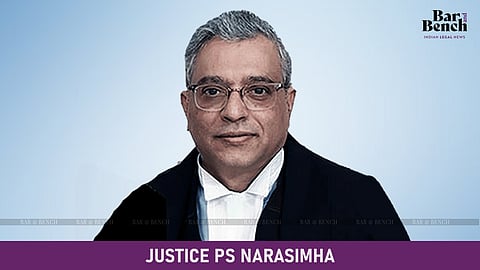
- Latest Legal News
- News
- Dealstreet
- Viewpoint
- Columns
- Interviews
- Law School
- Legal Jobs
- हिंदी
- ಕನ್ನಡ

Supreme Court judge Justice PS Narasimha on Saturday batted for the establishment of an Arbitration Council of India as recommended by Justice BN Srikrishna Committee's report on institutionalising arbitration in India.